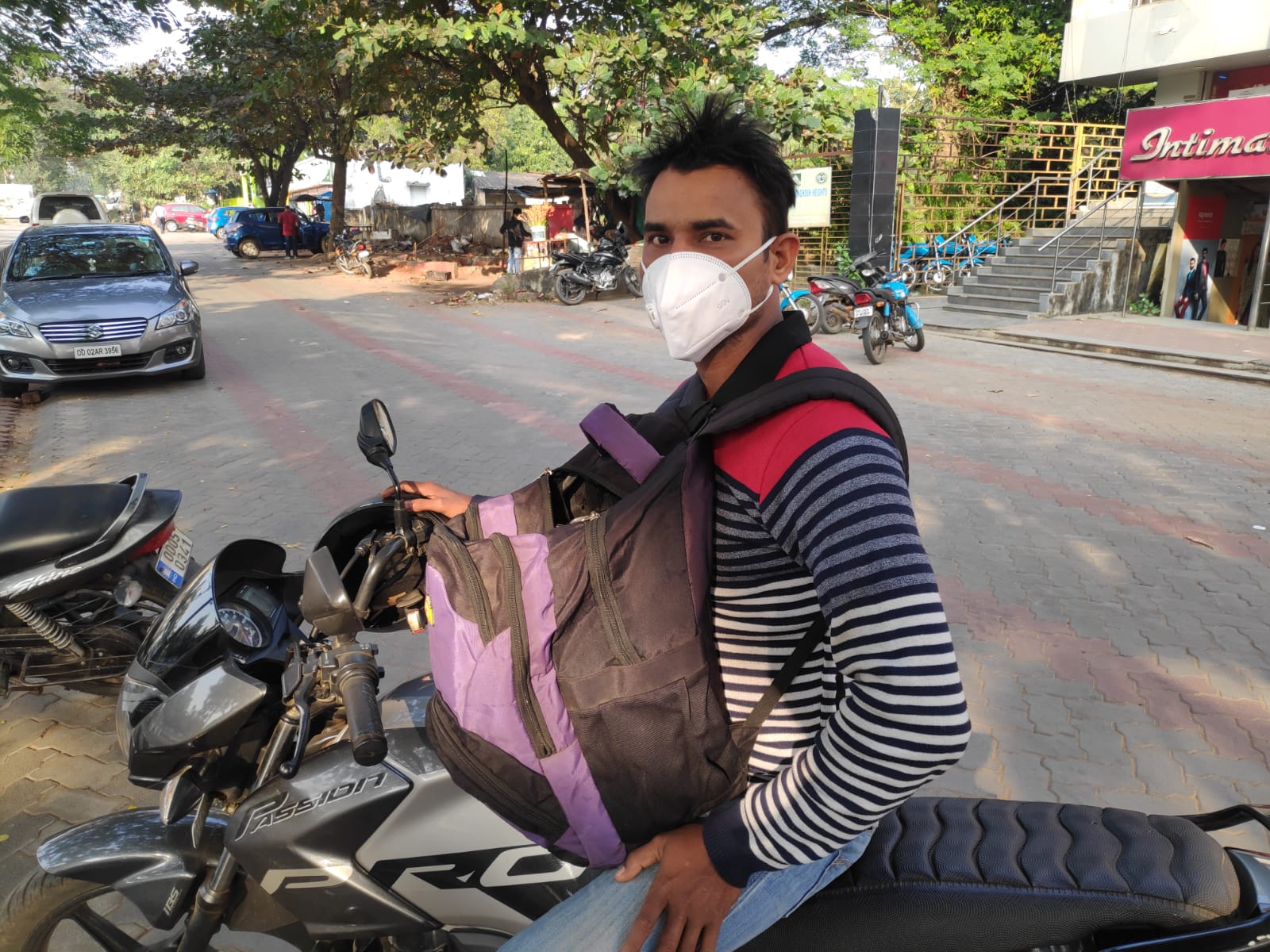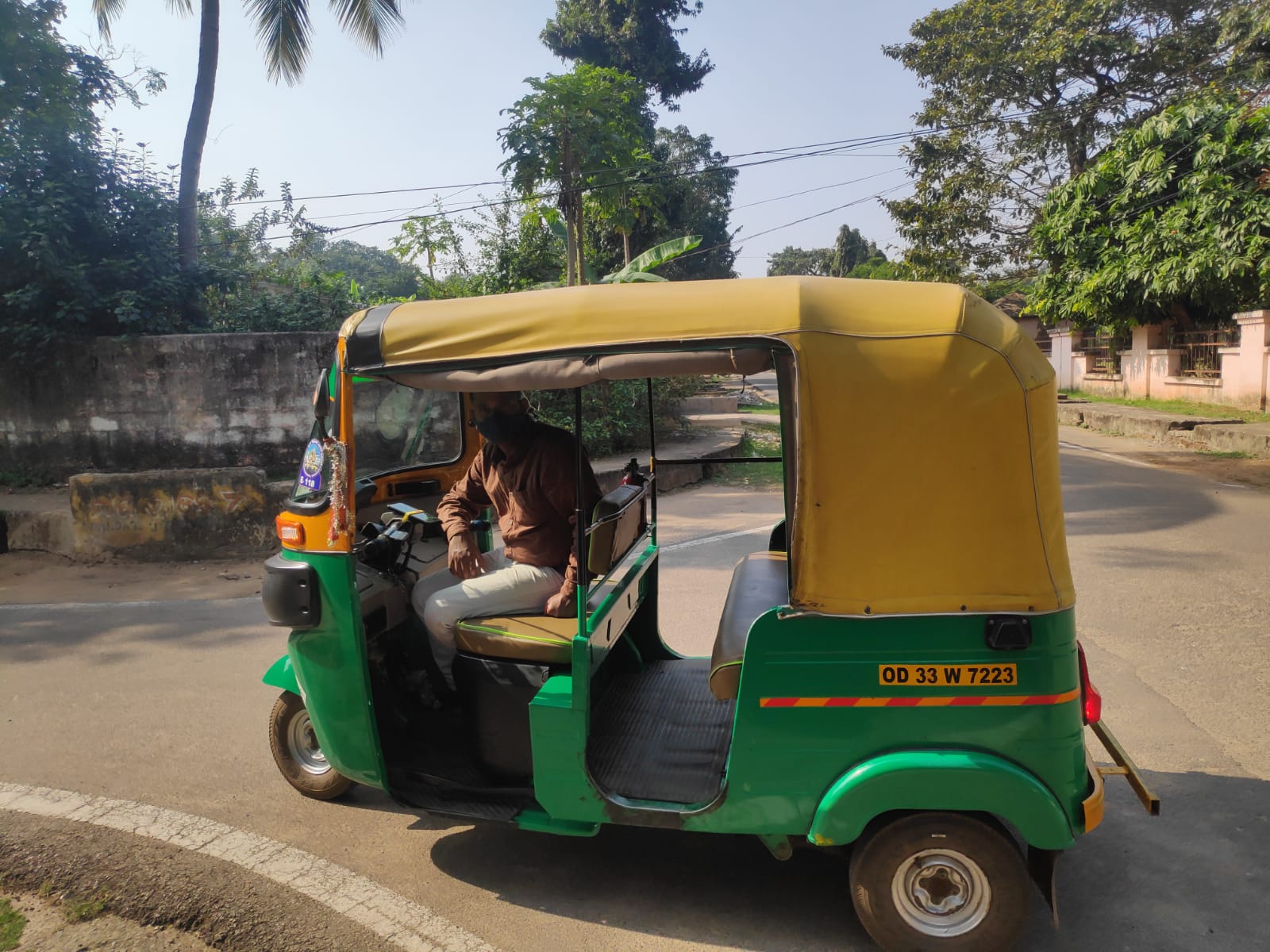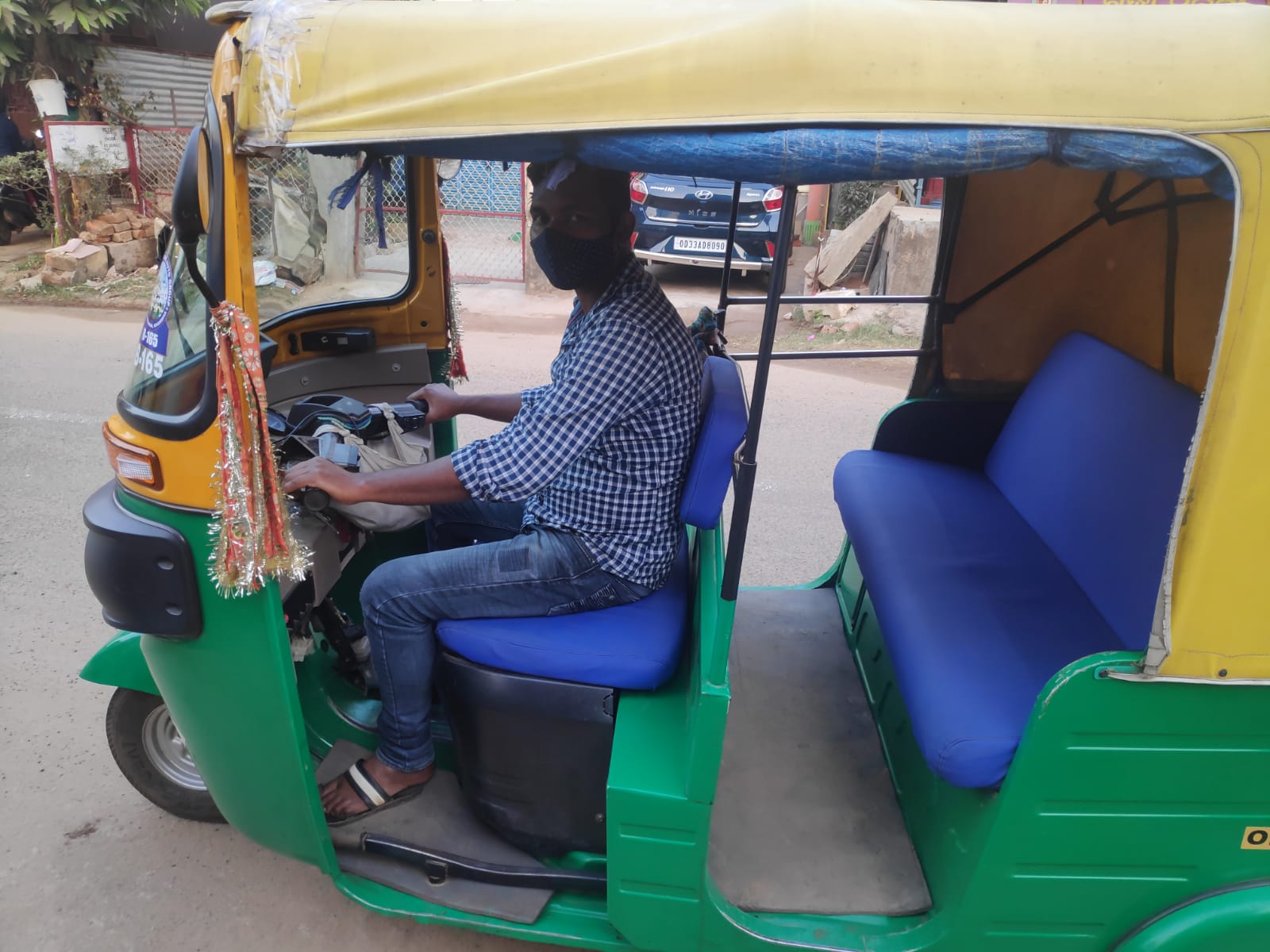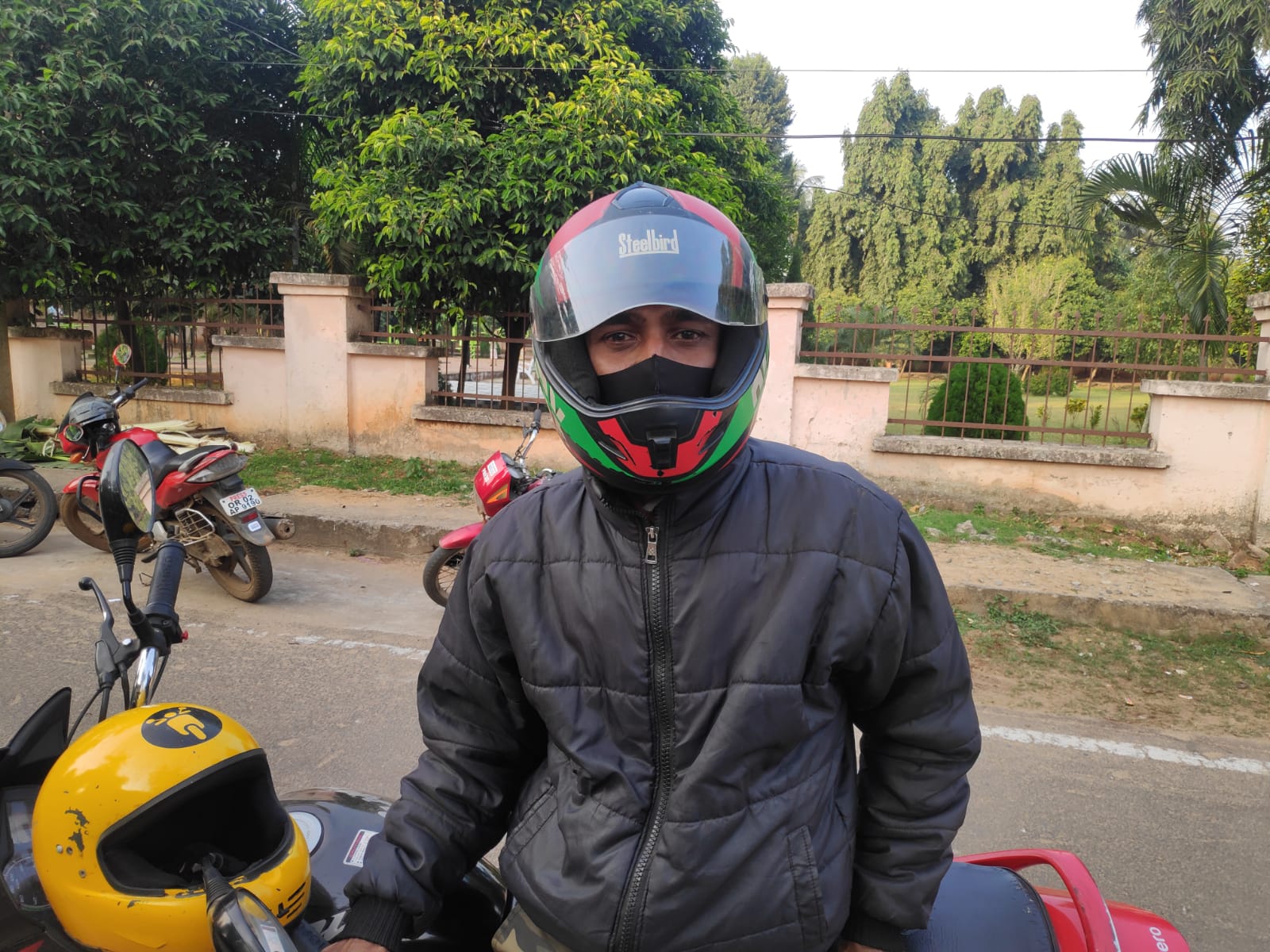Bhubaneswar: Public transport has always been able to capture the true rhythms of a city. Odisha’s capital Bhubaneswar is no different. The hustle and bustle of public transport act as its heartbeat, propelling bleary-eyed people every morning to their workplaces before bringing them back home: barely alive bags of flesh and bones looking forward to family reunions and dinners for rejuvenation.
To the people who take these roads well-travelled, and have a choice between a line auto-rickshaw, city bus or Uber bikes and cars, instead of driving their own vehicle, it is understood that there is a certain art and sport to these modes of transport. The very firm yet polite words and hand signals, to gesture to someone that your seat has their name on it, and they need not be afraid to give you some room to get out at your bus stop.
The game of entering an already full-to-the-brim line auto, in a rush to a far-off destination, betting on the rest of your mysterious compatriots getting off at early stops, ready to brave any incoming leg cramps, the act of public transport can be defined as a well-choreographed dance between the drivers and passengers, not much unlike the Samba or the Two-Step.
There have been some changes to the routine in recent years, with the increasing digitalisation of every aspect of our lives. The introduction of global and national conglomerates like Uber, Ola, Jugnoo and Rapido into the mix has left the once very lively jig of getting a ride much more cold, automated and robotic. The process, even though much easier in a lot of aspects, especially during the times of COVID-19, has led to the weakening of that glorious synergy, which is evident at the cancelling of a trip, for an unspecified reason, causing a lot of hurt, confusion, ill-will, and even worse, a below 4-star rating for both parties.
Here’s a glimpse into the minds of people who are responsible for your travel, on how to keep the connections fresh, what mutually beneficial app to choose from, and whether to carry cash or credit during these times of minimal human contact.

Pratap Kumar Panda has been working in association with Uber, Ola and Rapido for two years, having started during the lockdowns. “Ola is the top priority for us in Bhubaneswar. It is also preferred by the people, but I give my honest effort towards every single ride that I’m offered. Ola has higher rates which is the reason it’s slightly more beneficial than competitors. Rapido has relatively low prices for shorter distances, but I still never cancel any of its rides. The work has to be done, if I won’t, then someone else is bound to do it. I’ve even been on long-distance, two-wheeler journeys, all the way to Balasore, Puri and Jagatsinghpur with some people,” he says.
On the recent phenomenon, where drivers call and ask you to select “Cash” as your mode of payment before accepting your trip, Pratap mentions, “Cash in hand brings a sense of relief as it’s an immediate tangible result of our hard work. If you pay through Paytm or PhonePe it takes some time before it reaches our pockets. Ola gives us the money the next day, but Uber takes a week. It’s hard to take care of petrol prices. Also, if you don’t book enough rides, it leads to a serious deficiency of our living wages for that week,” he says.
He does say that the need for cash over credit varies from person to person and he himself accepts both. “We are paid Rs 30 as our base fare, Rs 8 per kilometre, Re 1 or 50 paise for one minute of our time. But even that is subject to fluctuation, and on top of that 5 per cent of our pay has started being subtracted for GST charges. Uber has already been cutting money from base fare. That’s how it provides lower prices for the customers. Ola shows a little higher price, but it pays us fairly. Jugnoo hasn’t thrived in this market at all. Yes, Uber does offer incentives, but how does it matter when it’s taking money from us in the other hand,” says Rajib Nayak, who has been in the business for two years.

On the Cash vs Google Pay, PhonePe and Paytm debate, he says that people are apprehensive to take their business online fearing GST cuts, and therefore they prefer transactions in cash.
“It’s hard to earn a living, but I still find some time to give back. We have a Smart City Auto Association in Bhubaneswar that coordinates different drives to cook and provide food in orphanages and slum areas in times of lockdown. We also have a blood bank setup and funds for the families of any auto driver who passes away due to unforeseen circumstances. Through associations like ours, we have been somewhat successful in regulating our salaries, and placing our demands in front of big corporations.”
Basanta Gouda has been making a living for himself by driving his three-wheeler since 2017. He is part of an association, Grand Online Group, that started four months ago. “If it’s your own vehicle the cash or credit payment option doesn’t come into question, but a lot of drivers don’t own their auto-rickshaws. Uber takes a week to give our payment if executed online, Ola takes a day. But a lot of people don’t know that if the fare is above Rs 200 you can gain immediate access to your money through Uber app,” he says.
“Sometimes passengers complain about the driver or their vehicle and the app cuts our fares. We aren’t notified and don’t understand the exact reason, which leads us to give the app a bad reputation. It all comes down to our own actions. I try my best to put my head down and work hard. I only use the Uber app these days. I can video-call the customer, change my Sim card and phone number without the hassle of having to show my licence, or produce passport size pictures. These facilities are exclusive to Uber,” he says.
Tapas Bigal has inherited his auto from his elder brother, who had to migrate back to his village due to COVID-related issues. He has only been working in the travel business for six months. He says, “I only use Uber and Ola and I think both provide equal opportunities for earning a decent living. I think people sometimes face issues due to network connections on both sides of the aisle and then blame it on the apps.”

“There is no cancelling from my side, except when people call for rides unknowingly at auto stands. We have to tell them to walk 100 metres forward or back, but sometimes they don’t understand. Drivers have an option to cancel rides too, but only after waiting for five minutes to get some kind of response from the customers. If we are comparing different businesses Uber does have some added incentives for us like Rs 25 for four trips and Rs 50 for six, which is not available on Ola,” he says.
Tapas hopes the COVID period ebbs and flows away without the need for another complete lockdown. “I have been strictly following government guidelines, always wearing masks and asking my passengers to do the same. When I reserve the auto for people, outside of the apps, I make sure there are no more than two-three of them travelling at once. I don’t think my family will be able to afford the auto anymore in case of another lockdown,” he says.
He plans to use his bike in the worst-case scenario, registering at Swiggy and Zomato to earn a living delivering food, if the city shuts down in the near future.
 Sanju Kumar has been working hard for three years, with some breaks in between because of the lockdowns. “I don’t use Rapido anymore because the app was prone to glitches. The prices they offered were also very low. Ola is my preference. They give us a lot of bookings, also the prices are really good even though there has been a dip in both aspects in the last 15 days. Ola also has special facilities, as it provides us with rides in the direction of our homes at the end of the night, letting us finish the day’s work properly and get much-needed rest.”
Sanju Kumar has been working hard for three years, with some breaks in between because of the lockdowns. “I don’t use Rapido anymore because the app was prone to glitches. The prices they offered were also very low. Ola is my preference. They give us a lot of bookings, also the prices are really good even though there has been a dip in both aspects in the last 15 days. Ola also has special facilities, as it provides us with rides in the direction of our homes at the end of the night, letting us finish the day’s work properly and get much-needed rest.”
He says he was in a completely different line of business and had to resort to giving out rides on his bike due to a bad turn of luck and the lockdowns. “Society attaches stigmas to jobs like ours, which made me apprehensive about taking this on. I guess it’s the same if you’re an entrepreneur and start the business of selling tea. I get to meet a lot of interesting people daily, have some great conversation and be able to put food on the plates of my family. I am content.”



